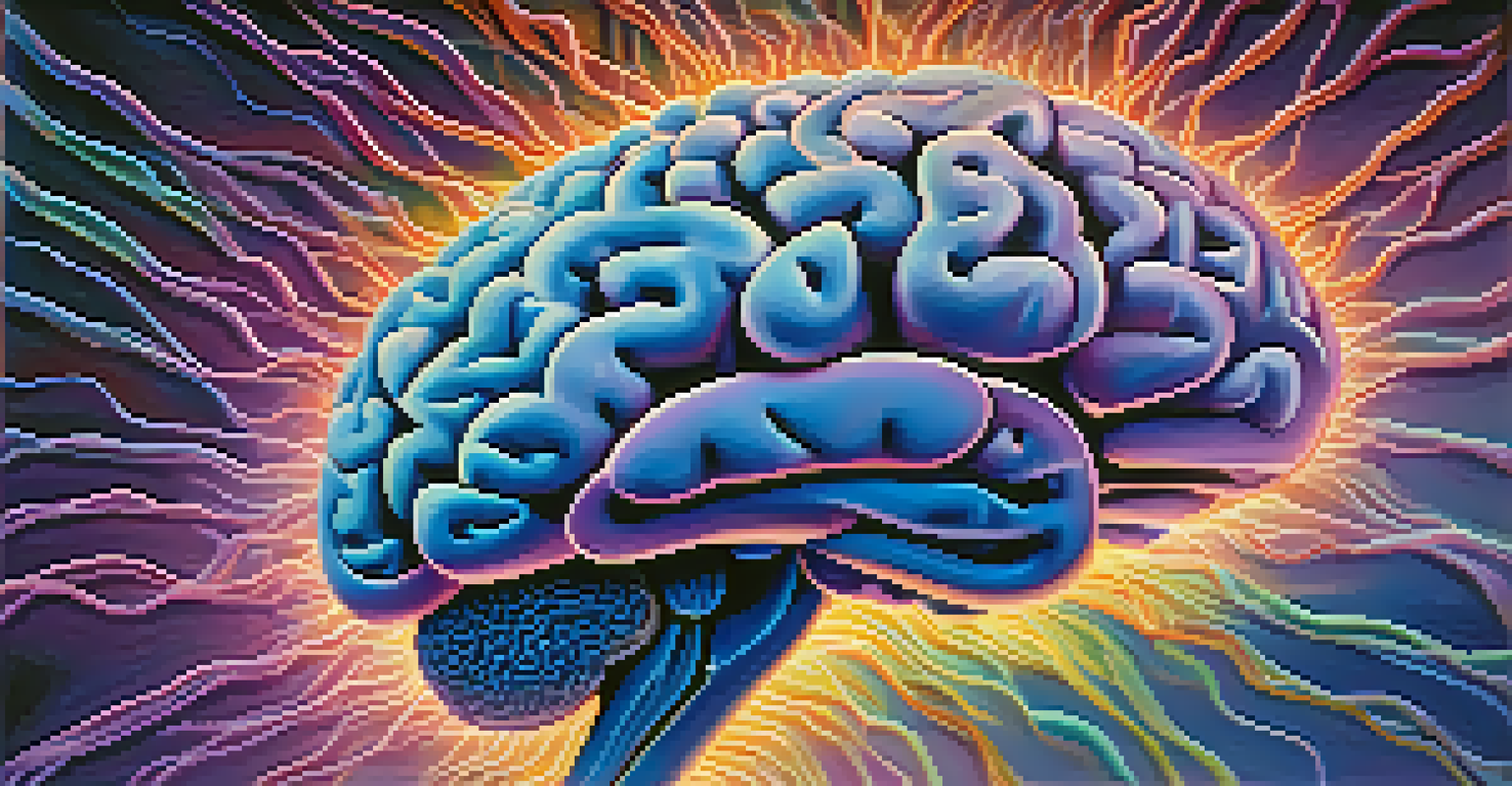Exploring Entheogens: A Path to Healing Through Grief Work

Understanding Entheogens: The Basics Explained
Entheogens are naturally occurring substances that can alter consciousness, often used in spiritual or healing contexts. These include plants and fungi such as psilocybin mushrooms and ayahuasca, known for their profound psychological effects. While sometimes viewed with skepticism, many cultures have harnessed entheogens for centuries to facilitate healing and introspection.
The wound is the place where the Light enters you.
At their core, entheogens can help individuals explore difficult emotions, including those associated with grief. Their ability to induce altered states of awareness can provide new perspectives on loss, allowing for deeper understanding and acceptance. This process can be especially beneficial for those feeling stuck in their grief journey.
As we delve into the relationship between entheogens and grief work, it's essential to approach the topic with an open mind and a willingness to explore. While they are not a panacea, they can serve as a powerful tool for many seeking to navigate the complex emotions of loss.
The Science Behind Entheogens and Emotional Healing
Research into entheogens has revealed fascinating insights into their effects on the brain and emotions. Studies have shown that substances like psilocybin can promote neuroplasticity, the brain's ability to reorganize itself and form new connections. This can be particularly useful in grief work, as it allows individuals to reframe their experiences and emotions.

Furthermore, entheogens often elicit feelings of interconnectedness and empathy, which can help individuals process their grief in a more holistic way. When we feel connected to others, it can alleviate the isolation that often accompanies loss. This sense of unity can be a powerful catalyst for healing.
Entheogens Aid Grief Exploration
Entheogens can provide new perspectives on grief, helping individuals process difficult emotions and find acceptance.
It's important to remember that while the science is promising, personal experiences with entheogens can vary widely. What works for one person may not work for another, which is why understanding individual needs and contexts is crucial in this exploration.
Navigating Grief: How Entheogens Can Help
Grief is a deeply personal journey, and entheogens can offer unique pathways to navigate it. By providing altered states of consciousness, these substances can help individuals confront their feelings of loss head-on. For many, this confrontation can lead to breakthroughs and moments of clarity that might have seemed elusive in everyday life.
Grief can be the garden of compassion.
Consider a scenario where someone feels overwhelmed by the weight of their grief; an entheogenic experience might allow them to process memories and emotions in a way that feels safe and supported. This new perspective can foster acceptance and even joy in cherishing memories with loved ones.
However, it's crucial to approach this process thoughtfully, ideally under the guidance of experienced facilitators. This ensures that individuals not only receive the support they need but also engage with entheogens safely and responsibly.
Setting the Stage: Preparing for an Entheogenic Experience
Preparation is key when working with entheogens, especially for grief work. This involves creating a safe and comfortable environment, both physically and emotionally. Setting intentions before the experience can help guide the journey, focusing on specific aspects of grief that one wishes to explore.
Additionally, having a trusted guide or facilitator can be invaluable. They can provide support during the experience, helping to navigate overwhelming emotions and ensuring that the individual remains grounded. This support can make all the difference in transforming a potentially challenging experience into one of healing.
Science Supports Emotional Healing
Research shows that entheogens promote neuroplasticity and feelings of interconnectedness, aiding in holistic grief processing.
Lastly, incorporating practices such as meditation or journaling before the experience can help individuals clarify their intentions and prepare mentally. This groundwork sets a positive tone, making the process more impactful.
Integration: Making Sense of the Experience
Integration is a crucial phase following an entheogenic experience, particularly in the context of grief work. This involves reflecting on the insights gained and incorporating them into daily life. Without proper integration, the powerful experiences may fade, leaving unresolved feelings behind.
Engaging in discussions with a facilitator or support group can provide a supportive space for sharing insights and emotions. This communal aspect can be particularly helpful, as others may resonate with similar experiences, fostering a sense of connection and understanding.
Additionally, journaling or creative expression can be beneficial for processing feelings post-experience. By articulating thoughts and emotions, individuals can solidify their insights and continue their healing journey.
Potential Risks and Considerations with Entheogens
While entheogens offer potential benefits, it’s essential to acknowledge the risks involved. Not everyone will have a positive experience; some may encounter challenging emotions or overwhelming feelings that can be difficult to navigate. Understanding these risks is crucial for anyone considering this path.
Moreover, individuals with certain mental health conditions should approach entheogens cautiously, as they can exacerbate symptoms. Consulting with a healthcare professional prior to engaging with these substances is always a wise step to ensure safety and suitability.
Integration is Key Post-Experience
Reflecting on insights gained from entheogenic experiences is essential for effective healing and emotional growth.
Ultimately, a balanced approach that weighs potential benefits against risks can help individuals make informed decisions about their healing journey.
The Future of Grief Work and Entheogenic Therapies
As research into entheogens grows, so does the conversation around their role in grief work and emotional healing. Increasingly, professionals in psychology and therapy are considering integrating these substances into therapeutic practices. This shift represents a broader acceptance of alternative healing methods.
The future may see more structured programs that utilize entheogens in safe environments, guided by trained professionals. Such frameworks can help ensure that individuals have supportive, meaningful experiences that contribute to their healing journeys.

Ultimately, as society opens up to the potential of entheogens, we may find new ways to approach grief, helping individuals not only cope with loss but also transform it into a source of strength and understanding.